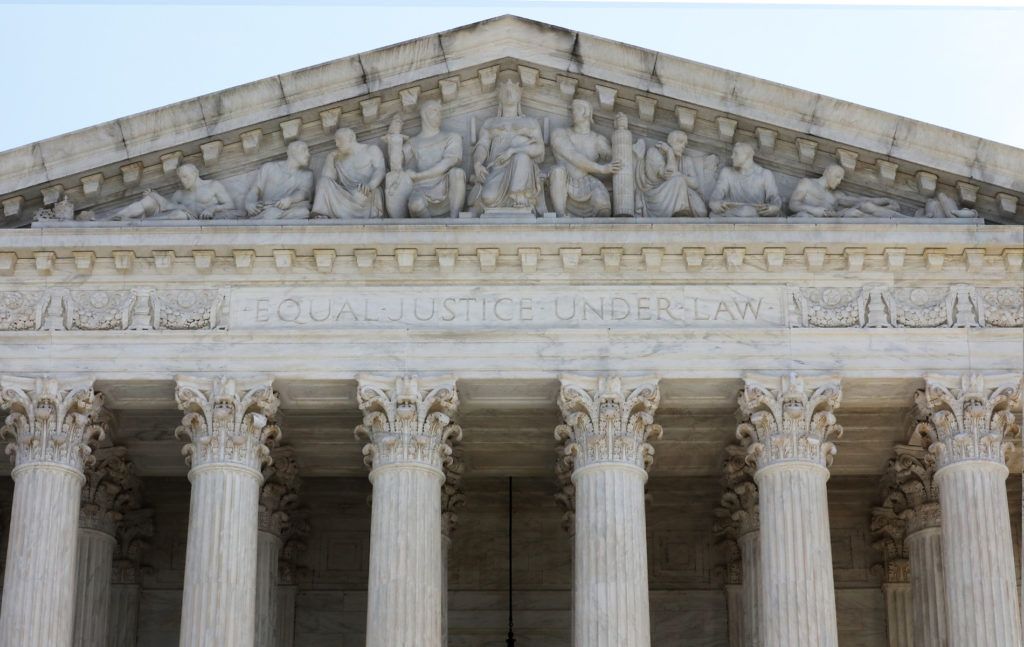
The U.S. Supreme Court is set to deliver rulings on three cases important to Southern Baptists by the end of June. Each case centers around the protection of vulnerable lives, including the lives of preborn children and of vulnerable women and children suffering from domestic violence.
Here is a brief explanation that highlights what you should know about these pending cases:
U.S. Food and Drug Administration v. Alliance for Hippocratic Medicine (AHM)
This case challenges the United States Food and Drug Administration’s (FDA) approval and regulation of mifepristone, a drug used in combination with misoprostol for chemical abortions.
The plaintiffs, a group of pro-life medical organizations called the “Alliance for Hippocratic Medicine,” argue that the FDA improperly approved mifepristone and made changes to the advised use of this drug. Such changes include:
- expanded mail-order access to the drug
- allowing for its prescription three weeks further along in a woman’s pregnancy
- removing other safety precautions to protect women against medical emergencies such as unchecked internal bleeding as a result of an ectopic pregnancy or other complication with a chemical abortion
The Alliance also claims the FDA failed to adequately consider the risks of the drug and that it violates the Comstock Act, an 1873 law prohibiting the mailing of “obscene, lewd, or lascivious” materials. Additionally, the plaintiffs argue that the combination of these decisions result in the potential violation of conscience protections for pro-life medical workers.
The Biden administration argued that:
- mifepristone is safe and effective
- the FDA acted within its authority to approve and regulate the drug
- the Comstock Act does not apply
Furthermore, the administration also contends the plaintiffs lack legal standing to bring the case.
A ruling in favor of the Alliance could require the FDA to return to the previously established safety requirements and limitations on the drug mifepristone. Such a ruling would both protect vulnerable preborn lives by making it more difficult to obtain a chemical abortion and ensure women receive the information and care needed to prevent further harm.
The Southern Baptist perspective on this issue revolves around two main concerns. First, Southern Baptists believe that all life, from conception to natural death, is inherently worthy of dignity and protection, regardless of age or ability. We hold that every child has the right to be born, and the act of terminating preborn lives directly contradicts these beliefs while also harming the mothers.
Second, Southern Baptists have a strong history of advocating for religious liberty in the workplace. Despite existing conscience protections, we have repeatedly witnessed attempts by the Biden administration to undermine these protections, either directly or indirectly.
The Supreme Court heard oral arguments on March 26, 2024, and is expected to issue a ruling by the end of its term this June. Find further details on the oral arguments here.
State of Idaho v. United States of America
This case involves a dispute on the relationship between the State of Idaho’s pro-life Defense of Life Act and a federal law called the Emergency Medical Treatment and Labor Act (EMTALA).
In 1986, Congress passed EMTALA, which ensured that hospitals could not deny emergency care to individuals due to an inability to pay, requiring them to treat and/or stabilize all patients.
- Originally, EMTALA was designed to ensure hospitals that receive Medicare funding provide emergency care to stabilize patients for transfer to another hospital, regardless of ability to pay.
- The law specifically provides that both the mother and the “unborn child” are viewed as patients who must be stabilized and cared for. In extreme cases where the mother’s life is at risk, EMTALA allows for an abortion to be provided if there is no other option.
The Biden administration is attempting to overturn Idaho’s pro-life law by arguing it violates EMTALA. However, both laws seek to protect and safeguard life; the Biden administration is attempting to pit these two laws against one another.
Furthermore, Idaho claimed during oral arguments that the 10th Amendment reserves this issue for the states and that the federal government has no constitutional authority to regulate abortion. It contends the Biden administration is improperly using EMTALA to force Idaho hospitals to perform abortions against state law.
The Biden administration countered that Idaho’s law violates the Constitution and federal statutes that imply access to abortion care. It argued the Supremacy Clause gives federal law precedence and that the government has a duty to ensure access to lawful medical procedures. The administration claims that Idaho’s ban creates a public health crisis by preventing doctors from providing necessary, life-saving care.
The Supreme Court’s decision to hear a case related to Idaho’s Defense of Life Act has significant implications for the pro-life movement and the future of state pro-life legislation. The outcome of this case could either uphold state-level abortion restrictions or allow the federal government to indirectly support abortion access.
The Supreme Court heard oral arguments on this case on April 26, 2024, and is expected to issue a ruling by the end of its term in June.
This case centers around whether or not existing federal law prohibiting individuals perpetuating domestic violence from possessing firearms remains constitutional under a new 2022 test that was developed by Justice Clarence Thomas.
The defendant, Zackey Rahimi, was subject to a civil protective order in Texas after an alleged assault on his ex-girlfriend. The order prohibited him from possessing firearms under a federal law that has been in place since 1996. However, Texas police later found Rahimi in possession of several guns following his involvement in five separate shootings, leading to an indictment under federal law.
Rahimi argued that this existing federal law violates the Second Amendment, claiming the Supreme Court’s recent Bruen decision overturned precedent that previously allowed the law to remain in place. The new test developed in Bruen requires the court to review historical tradition and context of the Second Amendment before determining whether or not a law violates the amendment.
The federal government argued that the Second Amendment does not protect the right of individuals convicted of domestic abuse to possess guns due to safety concerns for the women and children that may be harmed as a result. The federal government cites Heller (2008), where Justice Scalia maintains the application of Second Amendment rights to “law-abiding, responsible citizens to use arms in defense of hearth and home,” and the current statute is a lawful restriction on that basis.
A ruling in favor of Rahimi could strike down the federal law, thus eliminating a key tool for protecting vulnerable victims of domestic abuse.
Southern Baptists have long advocated for the value and protection of life, whether such life is preborn, children who are adopted or who have been placed in foster care, or vulnerable women and children suffering from domestic abuse. Removing a law that is already in place would open up vulnerable women and children to further abuse and likely result in the taking of lives.
The Supreme Court heard oral arguments in this case on Nov. 7, 2023, and is expected to issue a ruling by the end of June.




















